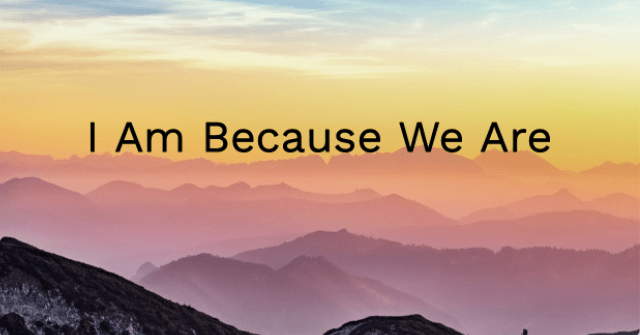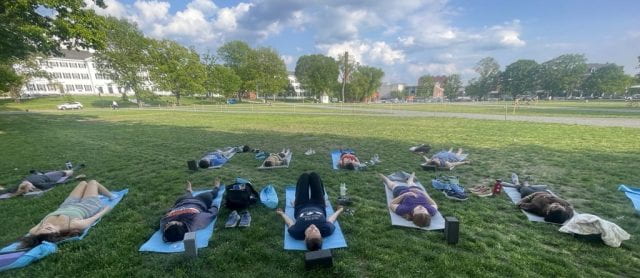Photo Credit: https://itsjustlife.me/i-am-because-we-are/
Following excerpt written by: Michael Burns Jr ’26
Welcome back to the Summer of Reflection with the Student Wellness Center! As we continue our journey of self-exploration and introspection, we now turn our attention to an essential aspect of our overall well-being: Social Wellness. In the midst of this bustling college environment, it’s crucial to foster strong personal connections, manage interpersonal conflicts effectively, and engage with our community and the people around us.
Social wellness isn’t just about attending parties or joining clubs; it’s about building meaningful connections, navigating conflicts, and cultivating a genuine sense of belonging within your community. A solid support system can help buffer against stress by providing guidance, encouragement, and that sense of security you need to bounce back stronger.
As you reflect on this root of wellness, we invite you to consider where the following tips and tricks might help you strengthen your social roots here at Dartmouth and beyond:
- Stay connected to the important people in your life – Thanks to technology, staying in touch has never been easier. Whether it’s a FaceTime call, an Instagram DM, a WhatsApp message, or even a good old-fashioned phone call, make the effort to connect with your loved ones regularly. These connections provide a sense of continuity and support, reminding us that no matter where we are, we’re not alone.
- Create a personal cheerleading squad – Having a network of friends who understand, uplift, and encourage you can make a world of difference. Those meaningful connections can help you gain perspective, boost self-esteem, and provide that unwavering support during challenging times. Trust me, they’ll be your biggest cheerleaders on this journey!
- Navigate conflicts with compassion – Even the most healthy and equitable relationships endure hardships at times. When conflicts arise in otherwise healthy relationships, try to approach these moments with a heart and ear towards creating deeper understanding and learning. By showing up with presence and empathy, we can hold space for both our own experience of challenge/hurt while also working towards resolution with the person we care about.
- Embrace the vibrant community that surrounds you – Dartmouth has incredible resources for building community and making connections. For me, the key to hearing about the events is actually going through the emails from LISTSERV.
Whether it’s through clubs like the Dartmouth Outing Club, dance groups, religious organizations, or your House Community, there are plenty of avenues to connect with individuals who share your interests and passions.
So, as you continue on your college adventure at Dartmouth, try to keep in mind the importance of nurturing your social connections. Whether that’s through choosing to embrace the vibrant community that surrounds you, reaching out to new people, or creating spaces for meaningful interactions — your social root has greater capacity to flourish allowing your college experience to be more likely enriched with lifelong friendships, personal growth, and incredible memories.
Stay tuned for our next reflection, where we’ll explore another vital root of well-being: Financial.
As you are ready, go out there, create unforgettable memories, and build the social network of your dreams. The world is waiting!
We wish you a life lived with vitality, balance, and joy,
Michael Burns Jr ’26
SWC Wellbeing Intern









